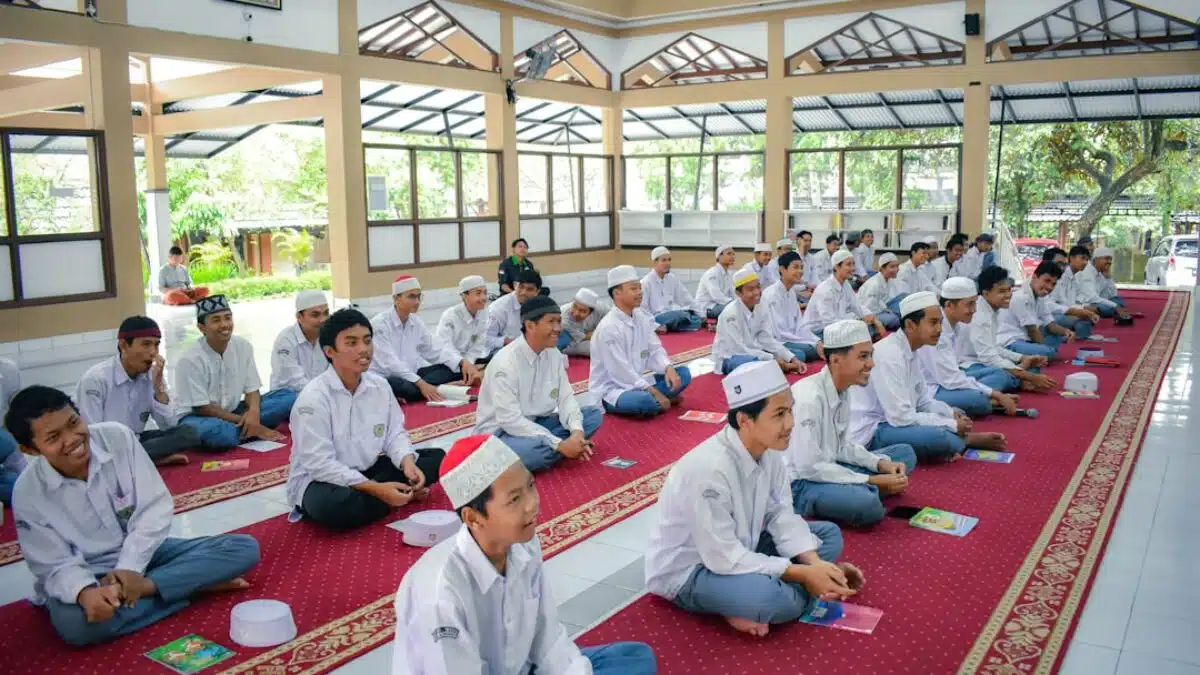Introduction
In an age characterized by unprecedented challenges—personal, societal, and global—the ability to foster resilience has become a cornerstone of emotional well-being. For many Muslims, the principles of resilience are deeply woven into the fabric of their faith. Islamic resilience training offers a unique framework to overcome adversity, navigate life’s challenges, and fortify inner strength. This article explores the role of Islamic resilience training in modern life, supplemented with research findings, real-world examples, authentic reviews from practicing Muslims, and practical implementation tips.
Understanding Resilience in the Islamic Context
Resilience, broadly defined, refers to the capacity to recover quickly from difficulties. In Islam, this is often intertwined with the concept of Sabr, or patience. The Quran contains numerous verses that emphasize the importance of patience, perseverance, and trust in Allah (SWT). For instance, Surah Al-Baqarah (2:153) states, “Indeed, Allah is with the patient.” This foundational principle encourages Muslims to adopt a resilient mindset, serving as a source of strength when faced with adversity.
Research in psychology reinforces the benefits of resilience. Studies show that resilience can lead to better emotional regulation, improved coping strategies, and heightened life satisfaction. Islamic teachings dovetail with these findings, as practices such as prayer, supplication, and community support are designed to promote psychological well-being. Through regular engagement in these practices, Muslims not only enhance their spiritual state but also build a robust framework for resilience that can withstand life’s storms.
Real-World Example: Stories of Resilience
Consider the story of a young Muslim woman, Aisha, who immigrated to a new country with her family. Upon arrival, they faced numerous challenges: language barriers, cultural differences, and financial hardships. Instead of succumbing to despair, Aisha drew on her faith. She engaged in regular prayers and community gatherings, where mutual support offered a lifeline. Through reliance on her faith and the teachings she absorbed, Aisha navigated her challenges. The support of her local Islamic center played a pivotal role, providing mentorship and resources for educational advancement. This is a classic example of how Islamic resilience training can cultivate inner strength.
The Elements of Islamic Resilience Training
Faith and Spirituality
At the heart of Islamic resilience training is a deep-rooted faith that transcends the material challenges of daily life. Believers are taught to see trials as tests from Allah (SWT) intended to strengthen their character and reliance on Him. The concept of Tawakkul, or trust in Allah, encourages Muslims to surrender their worries to God while taking proactive steps to address their difficulties. This dual approach—seeking divine assistance while also engaging in tangible efforts—cements the belief that challenges can be converted into opportunities for growth.
Through prayer, Muslims engage in direct communication with Allah. This connection fosters a sense of security and stability, equipping believers with the mental fortitude to face adversity. Regular recitation of Quranic verses that emphasize comfort and hope—such as Surah Al-Anfal (8:46), which states, “And do not weaken and do not grieve, and you will be superior if you are true believers”—serves as a reminder of the spiritual resources available to them.
Community Support
The community plays a significant role in the resilience training process within Islamic culture. The Prophet Muhammad (PBUH) emphasized the importance of Ummah, the broader community of Muslims. A supportive community can significantly enhance an individual’s resilience by providing emotional, social, and spiritual resources. In practical terms, this means establishing strong networks of friends and family who uplift each other during difficult times.
For instance, many mosques offer programs specifically tailored to help members cope with stress or loss. These can include workshops focused on mental health awareness rooted in Islamic principles. Support groups, whether for parents, youth, or specific life challenges, foster an environment where individuals can share their experiences and feelings. Testimonials from community members reveal how such networks have been instrumental in their journeys toward resilience. One participant noted, “Without my community, I would have struggled far more. Their presence made me feel less alone in my hardships.”
Self-Care and Mindfulness
Incorporating self-care into Islamic resilience training is essential. The Prophet (PBUH) acknowledged the importance of taking care of one’s physical and mental health. This includes engaging in practices that promote mental well-being, such as dhikr (remembrance of Allah), meditation, and mindfulness techniques that can mitigate stress. One practical tip is to establish a routine that combines prayer, self-reflection, and relaxation methods.
Mindfulness, while a modern psychological term, aligns with Islamic practices of reflection and gratitude. Journaling about one’s thoughts and feelings, especially after prayer or recitation of the Quran, can help in processing experiences and emotions. Muslims are encouraged to express gratitude regularly through Shukr (thankfulness), which not only enhances emotional resilience but also shifts focus from challenges to blessings.
Practical Tips for Implementation
Step 1: Establish a Daily Routine
Create a routine that includes daily prayers, mindfulness practices, and time for personal reflection. Start each day with the Fajr prayer, allowing the tranquility of the early morning to set a positive tone. Incorporate mindfulness techniques, such as deep breathing or guided meditation, during breaks or after prayers.
Step 2: Engage with the Community
Actively participate in community events at your local mosque or Islamic center. Attend classes, volunteer for events, or simply connect with fellow members. Building a network of supportive relationships strengthens resilience. Organizing or joining support groups can provide an avenue for shared experiences and collective healing.
Step 3: Practice Gratitude
Integrate gratitude into your daily routine by maintaining a gratitude journal. Take a few moments each night to reflect on three things you are thankful for that day. This practice cultivates a positive mindset and enhances emotional endurance, reinforcing the belief that good exists even in difficult circumstances.
Step 4: Learn and Apply Islamic Teachings
Study Islamic literature that focuses on resilience, such as the teachings of the Prophet Muhammad (PBUH) and stories from the Quran. Engage in discussions with knowledgeable members of your community or online groups dedicated to Islamic teachings. Applying these teachings to your life reinforces the understanding that challenges can lead to growth and inner strength.
Step 5: Seek Professional Help if Needed
Recognize that seeking help from mental health professionals is not a sign of weakness but a proactive step towards fortifying resilience. Many Muslims may hesitate to seek therapy due to cultural stigma, but combining psychological approaches with spiritual guidance can create a comprehensive support system tailored to individual needs.
Authentic Reviews: Voices of Practicing Muslims
To gain deeper insights, we spoke with several practicing Muslims about their experiences with resilience training grounded in Islamic principles.
Fatima, a 34-year-old educator: “When I lost my job during the pandemic, I initially fell into despair. My community rallied around me, providing moral support. They reminded me of the teachings on patience. I started attending online sessions and engaging in supportive dialogues. It transformed how I viewed my own challenges. I emerged stronger and more connected to my faith.”
Omar, a 28-year-old engineer: “I remember a particularly tough period in college. Balancing studies, family issues, and my faith felt overwhelming. It was through dhikr and communal prayers that I found solace. The environment at my mosque was incredibly nurturing. The friendships I built there became my lifeline. They taught me that in unity, there’s strength.”
Layla, a 45-year-old mother: “Raising children in a fast-paced, digitally-driven world comes with its unique challenges. I learned to find moments for myself. Engaging in self-care, like prayer and mindfulness, not only helps me but sets an example for my children. They see me working on my inner strength, and I believe it instills the same values in them.”
FAQs
Q: Can resilience be cultivated at any age?
A: Absolutely! Resilience can be developed at any stage of life. Engaging with supportive communities, practicing mindfulness, and fostering strong relationships can enhance resilience regardless of age.
Q: What if I struggle with my faith?
A: It’s normal to experience challenges in faith. Seeking knowledge through reading, participating in discussions, and consulting scholars can aid in strengthening one’s faith and understanding. It’s also beneficial to engage with supportive community members who can offer encouragement.
Q: Is seeking professional help against Islamic principles?
A: No, seeking help from mental health professionals is encouraged when needed. Islam emphasizes the importance of taking care of one’s mental health. Integrating spiritual wisdom with psychological strategies can make for a robust support system.
Q: How can I encourage my children to become resilient?
A: Involve your children in community activities, teach them the principles of patience and gratitude, and model self-care practices. Open dialogues about their feelings and experiences allows them to express themselves and learn coping strategies.
Conclusion
In a rapidly changing world filled with challenges and uncertainties, Islamic resilience training provides a meaningful framework for cultivating inner strength and perseverance. By intertwining faith, community support, and self-care practices, Muslims can build resilience that helps them navigate the complexities of modern life. Real-world stories illustrate the profound impact these practices have had on individuals, reaffirming the teachings of Islam that emphasize patience, trust, and communal bonds.
As we continue to face personal and global challenges, integrating these principles into our daily lives will not only enhance our emotional well-being but also enrich our spiritual journey. In building resilience, we strengthen not just ourselves but also the collective fabric of our communities, echoing the beautiful spirit of Ummah. Embracing Islamic resilience training is a holistic path towards developing a fortified inner strength that adapts and thrives in the face of adversity, lighting the way for ourselves and future generations.
























Post Comment